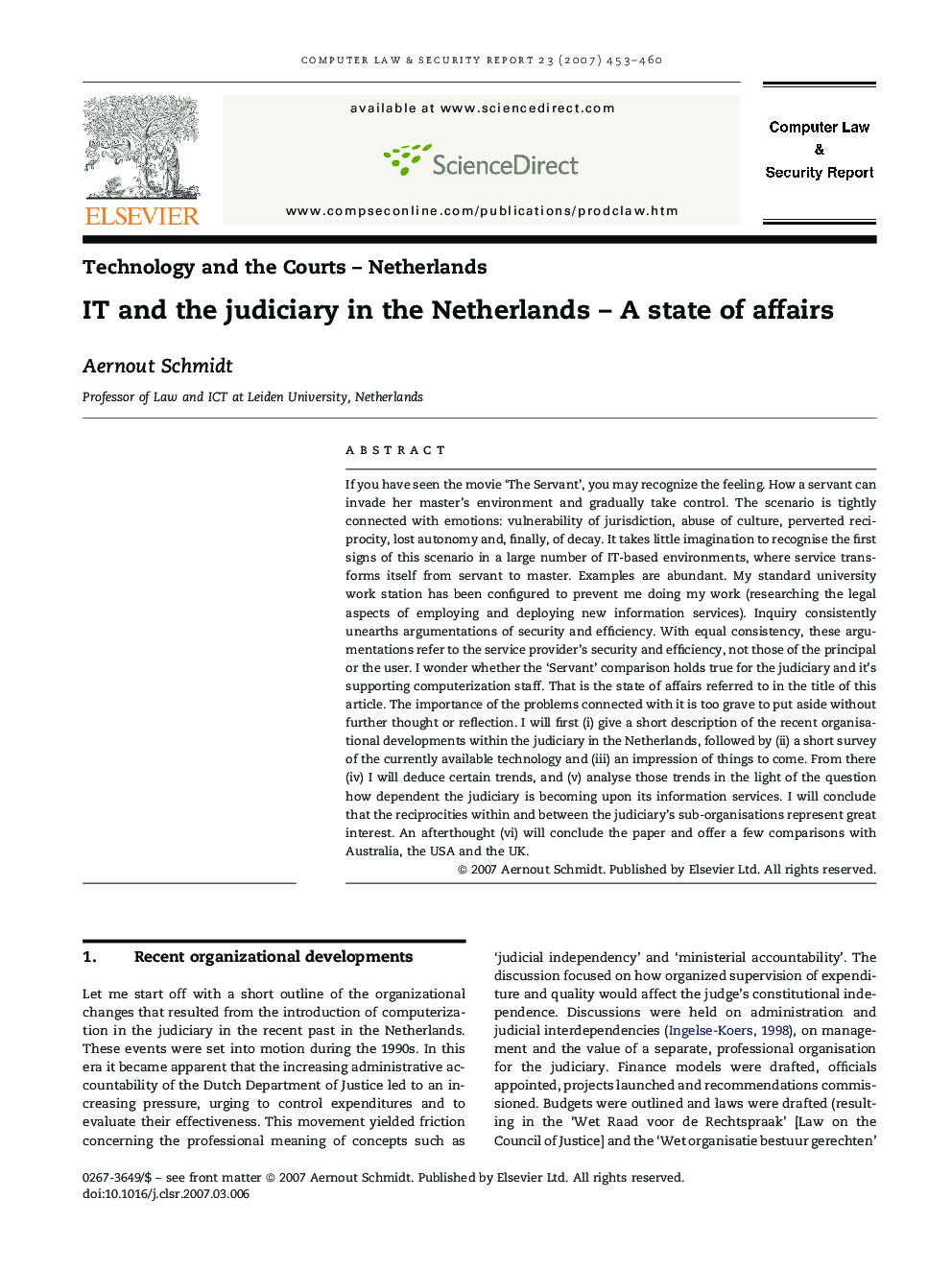| Article ID | Journal | Published Year | Pages | File Type |
|---|---|---|---|---|
| 465644 | Computer Law & Security Review | 2007 | 8 Pages |
If you have seen the movie ‘The Servant’, you may recognize the feeling. How a servant can invade her master's environment and gradually take control. The scenario is tightly connected with emotions: vulnerability of jurisdiction, abuse of culture, perverted reciprocity, lost autonomy and, finally, of decay. It takes little imagination to recognise the first signs of this scenario in a large number of IT-based environments, where service transforms itself from servant to master. Examples are abundant. My standard university work station has been configured to prevent me doing my work (researching the legal aspects of employing and deploying new information services). Inquiry consistently unearths argumentations of security and efficiency. With equal consistency, these argumentations refer to the service provider's security and efficiency, not those of the principal or the user. I wonder whether the ‘Servant’ comparison holds true for the judiciary and it's supporting computerization staff. That is the state of affairs referred to in the title of this article. The importance of the problems connected with it is too grave to put aside without further thought or reflection. I will first (i) give a short description of the recent organisational developments within the judiciary in the Netherlands, followed by (ii) a short survey of the currently available technology and (iii) an impression of things to come. From there (iv) I will deduce certain trends, and (v) analyse those trends in the light of the question how dependent the judiciary is becoming upon its information services. I will conclude that the reciprocities within and between the judiciary's sub-organisations represent great interest. An afterthought (vi) will conclude the paper and offer a few comparisons with Australia, the USA and the UK.
